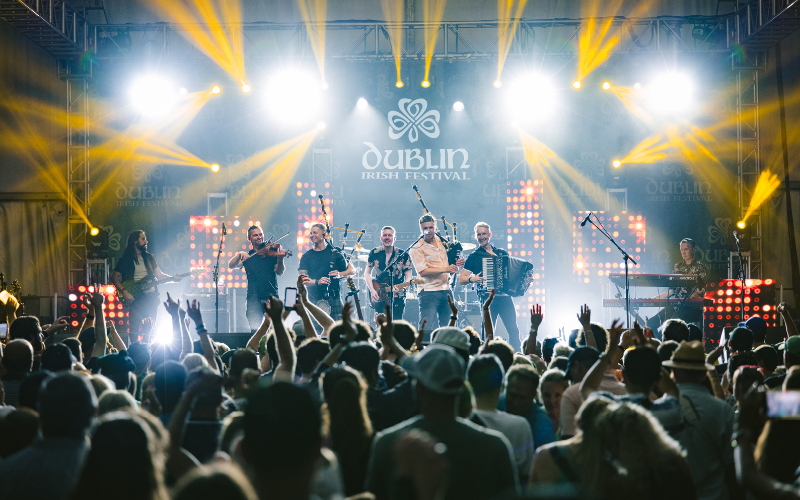The epic tale of revenge that is the first Irish famine movie “Black 47” has been highly anticipated in the US but director Lance Daly reveals the making of the movie was not completely smooth sailing.
While one of its stars Stephen Rea recently revealed that a previous movie about the Irish famine was rejected by Hollywood in the 1990s for being “too heavy,” Lance Daly, the director of “Black 47,” the first famine movie ever made, has stated that the film was far from easy to make.
While the lines building up across Ireland to see the movie since its release last week show the demand that there has been for a film of this kind, Daly said that it was telling why other filmmakers had avoided the subject very early on in the filming process.
Speaking to the Irish Independent, Daly said: “We got into week two and I was like, oh my God, what have I done? I've signed up to this and now I have to do it, but how am I going to get it finished?"
Read more: Irish famine film rejected by Hollywood because it was “too heavy”
Starring Hugo Weaving, Moe Dunford, Jim Broadbent, Sarah Greene, Stephen Rea and Barry Keoghan, “Black 47” focuses on the story of Martin Feeney, played by Australian actor James Frecheville, who returns to Ireland after fighting for the British Army to find his family dead or decimated by hunger, sparking a quest for revenge on those who put them there.
"I think this was a really smart way of addressing the subject," Daly added, "and the producer Macdara Kelleher had spent a long time developing this script in various forms before I got involved.
"This is the first-ever film about the Famine, isn't it? And when you think about it, maybe the genre route was the only way to go. I mean, do you want to make a film that's just about suffering, about people watching their children starve and families lying dead in their homes? Do you want to watch it, do you want to make it, do you want to be someone who tries to dramatize that? You had to tackle it in a less direct way.
"From the time I signed on till when we started shooting, I read maybe seven or eight books on the Famine, but I also had an assistant who was reading, we had a military historian, a political historian, an art historian, and we had the Quinnipiac Famine Museum in Hamden, Connecticut, which is the biggest visual archive - they have every newspaper cutting from the time, they've every image, all the paintings. So we had all that and I think we did everything we conceivably could. The historians have been very positive about it.
Read more: Review: “Black 47” movie is a must-see for Irish Americans who value their history and heritage
Insane queues for #Black47!! pic.twitter.com/UeqDXNX1nQ
— Lance Daly (@lancedalypics) September 10, 2018
"I think it's vague for everybody: we all have this basic idea that there was a dependence on the potato crop and the crop failed, that's about as far as it goes. And internationally, people say, 'Oh yeah, there was a famine in 1840-something', and there's this idea that the Paddies were all a bit thick and a bit lazy, and they depended on the spud and it backfired.
"And then in Ireland, there's this other narrative where people say there was food and they exported it and there was a genocide plot, but when you begin to delve into it, it's just so much more complicated than that. There are so many different ways to look at it, but it's great to see how fired up everybody is: if you look at the YouTube trailer for the film, the arguments after it are just endless."
Daly had already spoken about the difficulties in making a great Irish famine and revenge movie that wasn’t too tough for the audience.
Amazing opening for Black 47. No. 1 Irish film at the box office this year, biggest opening weekend of an Irish film since Brooklyn in 2015, sold-out screenings and great audience reaction!! Congratulations to director @lancedalypics and all involved with the film. #Black47Film pic.twitter.com/RcJ7KmRnsM
— WildcardDistribution (@WildCardDistrib) September 10, 2018
Back in February 2018, he stated that he wasn’t surprised no other filmmaker had previously attempted to portray the bleak years of hunger, starvation and immigration in Ireland before he began on his own dark, revenge-fuelled famine western.
“The Great Famine of 1845 to 1852 was the single most important event in Irish history,” Daly commented.
“It had a catastrophic effect on the country’s population, and considering the amazing generation of Irish filmmakers that came before me, I was stunned that this period had never before been dramatized in cinema.
“After making the film, I can understand why.”
Read more: “Black 47” director calls famine “the single most important event in Irish history”
There were also difficulties in showing so much death and destruction on the Irish population in the 1840s without making the movie too tough for the audience to appreciate. Daly faced a challenge in ensuring movie goers understood the harrowing events and how the British influenced them while also making a piece of work that would not leave them in too much despair.
“It’s such a tough story of suffering and hardship — it was tricky to find a way to do that in cinema that isn’t going to be punishing for the audience,” Daly said.
Have you seen “Black 47” yet? What is your review? Let us know in the comments section, below.




Comments